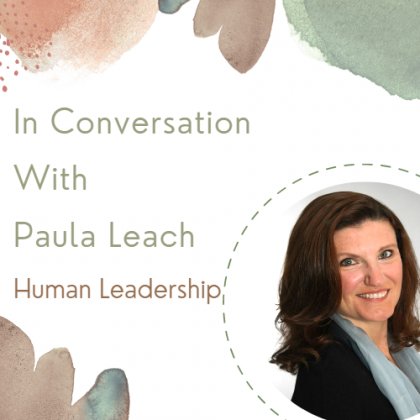Written by Mason Quah, Marketing Assistant
The Civil Service College is launching a new series of in-depth discussion streams looking at a variety of topics relevant to the Service. These interviews are led by expert perspectives from a variety of different positions within the civil service, offering a diversity of views that can be informative regardless of experience and seniority.
Our second episode looks at human leadership, speaking to Paula Leach, an Executive Leadership Coach and former Chief People Officer in the UK Home Office. Her speciality is refining top-level management strategies that benefit all levels of the wider organisation.
She opens by explaining the need for human leadership, and why it has become more important with time.
Before industrialisation, management was about coordinating people towards single tasks. With industrialisation, we moved to we were managing tasks and dividing them between people. In today’s information age management is more about person-to-person interactions.
“We're not leading humans in task endeavour, we're leading humans in human to human or human to machine. That requires us to be able to inspire collective people to work on something together and achieve outcomes. But we're looking not necessarily for people to complete tasks, you know, separately, that kind of come together that we coordinate, we're looking for people's creativity, we're looking for problem-solving, we're looking for collaboration, we're looking for social connection.”
Human Leadership isn’t a distinct branch of management, she explains, but the continuation of how we’ve always worked as a species
“[What made us successful as a species] wasn't necessarily our physical capability or our task capability. It was our problem-solving, our social connection, our collaboration, and our creativity. So harnessing those different innovative skills, is what leadership is about now. And we're much more dispersed. So you know, we have to actually be a lot more mindful and intentional about how we bring two people together. And we've got lots of different talents that we want to bring together.”
Leach describes one strategy as the process of creating ‘microclimates’, pockets of the workspace that cater to peoples’ unique attitudes and motivations so that everyone is able to give their best.
“If I'm a leader, and I want you to be engaged, I can't engage you, you have to engage yourself. So what my job is, is to create the conditions for you to be at your best for you to feel it your best for you to be able to contribute your best.”. The focus of these microclimates is the elements immediately around you that can be controlled.
The other side to leadership, she continues, is projecting a clear vision:
“Focus your energy on creating and painting a picture of where we're going in the future, the positive energy, etc. It doesn't mean to say that you're not working on some of those things, but you're orienting people towards the positive future, rather than constantly focusing on problems.”
“So the favourite question that I have, in any moment in any given time is what is the point: Once you as a leader can answer this question people will magnetise towards you.”
The attitudes held by leaders permeate the people who work under them, she explains:
“As human beings, we take our cues, from what we experience. So, if I walk into a room and I'm calm, I've got a clear idea of what I'm doing, and I look like I'm enjoying it, that’s important.”
She describes this approach as pulling people rather than pushing them. Motivated staff will then work with you towards your goal rather than being forced into the position of contributing.

